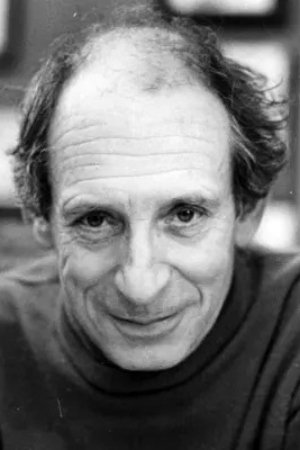Jacques Sternberg (1923-2006)
Birthplace:
Antwerp, Flanders, Belgium
Born:
April 17, 1923
Died:
October 11, 2006
Jacques Sternberg (April 17, 1923, Antwerp, Belgium – October 11, 2006, Paris) was a French-language writer of science fiction and fantastique. Sternberg was born to a well-to-do Russian-Jewish family. He was a poor student in school, particularly struggling in French. He began writing around the age of fifteen or sixteen. His early writings tended toward the fantastic and the burlesque, and it was only somewhat later that he began writing science fiction. After school Sternberg worked as a packer in a cardboard factory, before moving to Paris with the hope of becoming a publishing writer. The literary climate of 1950s Paris was dominated by the Surrealists and Sternberg found some success in that environment. Sternberg never identified with either his Jewish or Belgian heritage preferring to think of himself as simply "mortal." In his writings Sternberg never wrote of either the rich or the poor, but only of the employee, which represented the only world which he knew and could imagine. (source: Lamediatheque.be) Sternberg, a very apt helmsman, owned a diminutive 12 Ft dinghy (Zef class, excellent for day cruising but slow and utterly unfit for racing) and often undertook arduous coastal treks, even in comparatively bad weather. An anarchist at heart, he rejected organized regatta and racing – Not unlike Bernard Moitessier, the famous ocean vagabond – and wrote a biting satire of yachtsmen, sponsors and yacht clubs, in his erotic-nautical novel Le navigateur published at the peak of Eric Tabarly's success. Dinghy sailing means living a very close relationship with the sea and it is one of the keys to understand the important place of the sea in Sternberg's work, specially in what may arguably be his best novel Sophie, la mer et la nuit. Sternberg died from lung cancer, aged 83. Jacques Sternberg straddled the line between the fantastique and science fiction, which he stated was only a subset of the former in a notorious essay, Une Succursale du Fantastique nommée Science-Fiction [A Branch of the Fantastic Called Science Fiction], published in 1958. In Sternberg's works, the causes of terror are not ghosts or vampires but the modern-day city, often depicted as a giant, evil entity, ready to crush the hapless humans who dare live within its body. This theme reappears in novels such as L'Employé [The Employee] (1958), L'Architecte [The Architect] (1960) and La Banlieue [The Suburb] (1976). Sternberg's short stories, collected in La Géométrie dans l'Impossible [The Impossible Geometry] (1953), La Géométrie dans la Terreur [The Terror Geometry] (1958), Contes Glacés [Icy Tales] (1974) and Contes Griffus [Clawed Tales] (1993), to name but a few, successfully mix several diverse elements: a very dark sense of Surreal humor, a kafkaesque notion of the absurd, a taste for the macabre, and finally, a somber, pessimistic vision of the world and the future. In Sternberg's fiction, love is never a source of redemption, but something impossible, almost alien, as in Sophie, la Mer, la Nuit [Sophie, The Sea, The Night] (1976) and Le Navigateur [The Navigator] (1977). ... Source: Article "Jacques Sternberg" from Wikipedia in English, licensed under CC-BY-SA 3.0.





